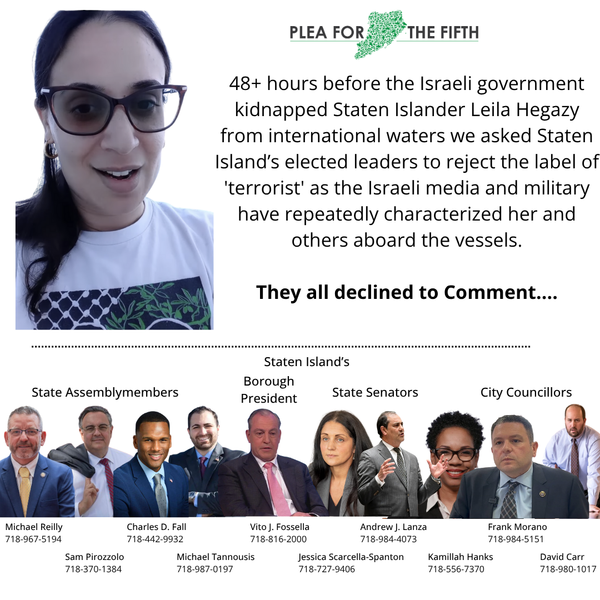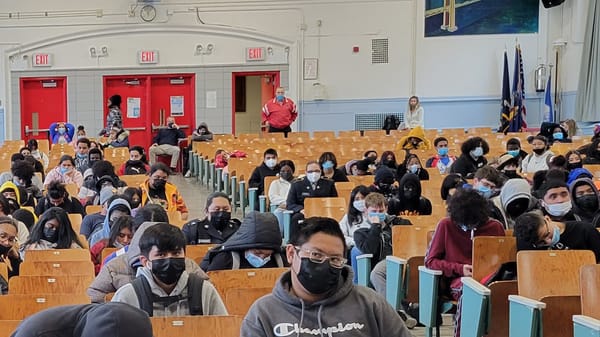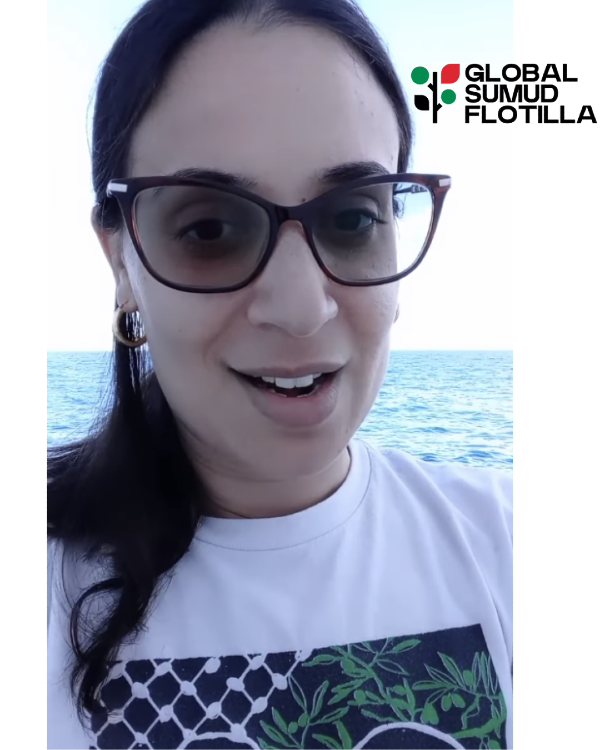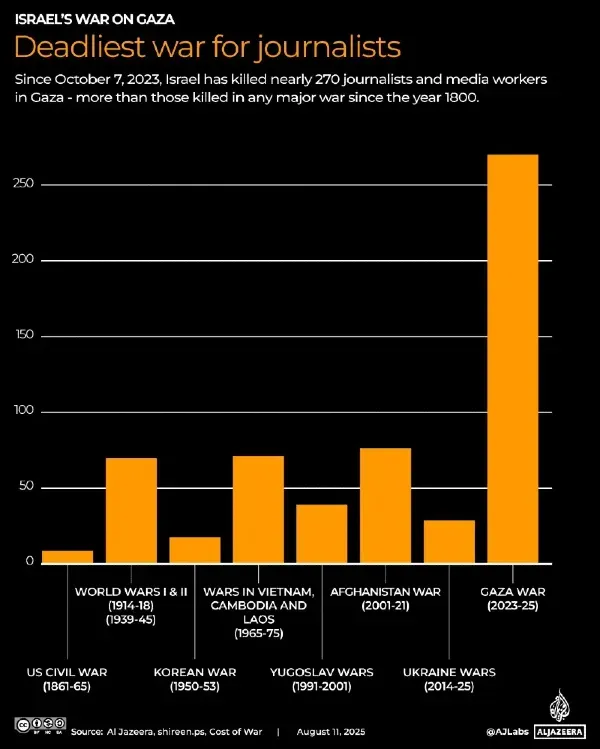A Call to Action: The People's Conference for Palestine and the Fight for Freedom
Staten Island attendees connected with organizers from across the nation and globe to sustain our commitment to liberation for Palestine.

On the 230th day since the onset of ‘Israel’s’ genocide on Gaza and the intensified siege on the West Bank, a coalition of organizations convened the first People's Conference for Palestine in Detroit, Michigan, from May 24 to 26, 2024. These organizations included the Palestinian Youth Movement, the US Campaign for Palestinian Rights, Healthcare Workers for Palestine, and Al-Awda: The Palestine Right to Return Coalition.
The conference drew over 3,500 attendees - including at least seven Staten Islanders - uniting supporters from multiple generations of the Palestinian liberation movement. The Palestinian people have been fighting for their freedom for over 100 years, and are committed to continuing generation after generation, until victory. Elder organizers of the 1970s and members of the first Palestinian liberation institutions, including the General Union of Palestinian Students, joined current youth activists from Students for Justice in Palestine and the Palestinian Youth Movement, creating a powerful intergenerational dialogue and solidarity.
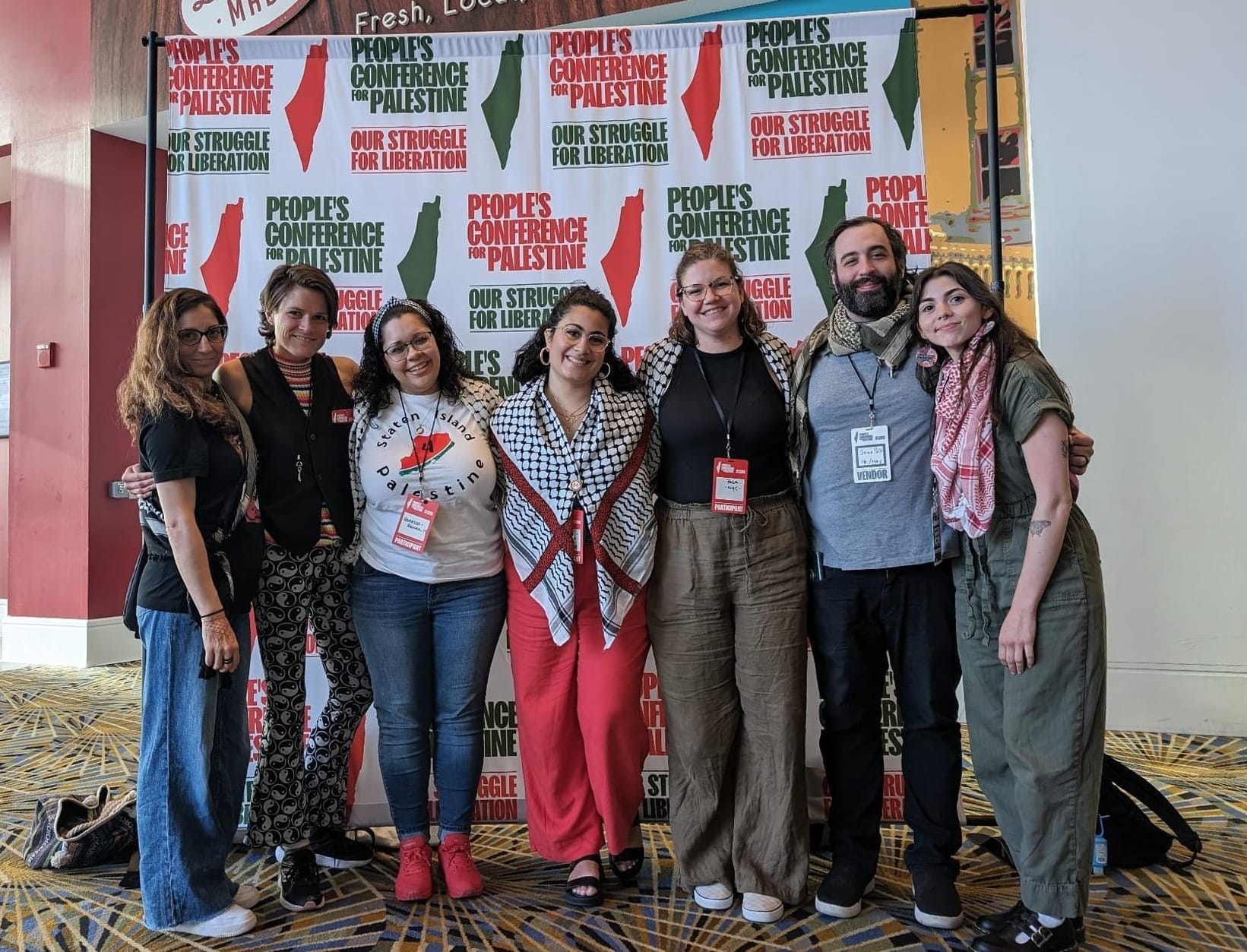
Conference organizers utilized this time to strengthen relationships, strategies, tactics, and unity for the continued struggle for a free Palestine. Sessions supported participants in building a shared assessment of the moment and charting the next phase of the struggle. Through various panels, participants were encouraged to engage in the next phase of the movement for a free Palestine —getting organized and joining political organizations; understanding our role in the heart of the U.S. empire to expose and dismantle the Zionist project; and strengthening and uplifting a grassroots movement in North America that brings people across all sectors of our society.
While the Biden administration has committed at least $41 billion of U.S. tax dollars to ‘Israel’ since October 7, 2023, conference speakers addressed their roles in various sectors to stop supporting this genocide. Journalists, Google tech workers, students, Starbucks employees, healthcare workers, and more shared their roles and responsibilities in stopping this U.S.-funded apartheid.
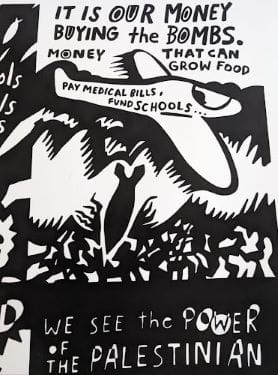
The innovative and flexible nature of the People's Conference for Palestine reflected the adaptability and creativity needed to sustain the Palestinian liberation movement. Notable figures joined virtually, including Palestinian surgeon Ghassan Abu-Sittah, who worked at Al-Shifa Hospital in Gaza during the early weeks of the genocide. He provided a first-hand account of the brutal ‘Israeli’ aggression against the Palestinian people and shared reports from medical workers on the ground in Rafah, where ‘Israel’ is waging a relentless offensive.
Palestinian Youth Movement organizer Mohammed Nabulsi highlighted the significant challenges faced by Sanaa' Daqqa, an activist, journalist, and the wife of the martyred Palestinian prisoner Walid Daqqa, in obtaining a visa to attend the event. Despite these difficulties, she managed to arrive directly from the airport to deliver her speech on the second day of the conference. This underscores the broader context of the obstacles many Palestinians encounter, with several being denied U.S. visas or interrogated at customs.
In her first speech at the People's Conference for Palestine, Sanaa' Daqqa delivered a deeply moving address about her late husband, Walid Daqqa, who spent 38 years as a political prisoner before being martyred in an ‘Israeli’ prison on April 7, 2024. She highlighted the cruelties inflicted upon him by ‘Israeli’ authorities, including the denial of conjugal visits and the blocking of his attempts to start a family. She mentioned the ongoing battle to release Walid's body from ‘Israeli’ custody so that he could be buried in his homeland. She criticized the ‘Israeli’ state for maintaining possession of the dead bodies to prevent families from mourning, describing it as a country that sanctifies death over life. She urged attendees to continue raising their voices, filling the streets, and demonstrating against the Zionist entity, stressing that their resistance is what roots them in their struggle and that they will not capitulate, asserting that it is either victory or death. Sanaa' also shared the story of her daughter, Milad, who was conceived through smuggled sperm while Walid was in prison. Milad symbolizes hope and resilience for the Palestinian people facing forced separation and imprisonment by the ‘Israeli’ Occupation.
During her second speech at the conference, Sanaa' focused deeply on the movement for political prisoners, a key aspect of Palestinian political life. Before October 7, 2023, ‘Israel’ held 5,200 Palestinian political prisoners, including 170 children and 1,264 detainees held without trial or charge. Today, approximately 9,500 Palestinians are currently in ‘Israeli’ custody. Around 3,660 are being detained under administrative detention, meaning they are detained without charge or trial. As of March 31, 2024, ‘Israeli’ forces are detaining 194 Palestinian children, with 61 of them held in administrative detention.
Sanaa’ shared, “Into the late ‘80s and '90s, the prisoners’ movement played a crucial role during the First Intifada. Much of the First Intifada was administered from within the ‘Israeli’ prisons themselves. … We have to be proud of being part of a people that brings out a prisoner movement like this and creates heroes and fighters like ours,” Daqqa affirmed. “The prisoners decided to create life from a life sentence.”
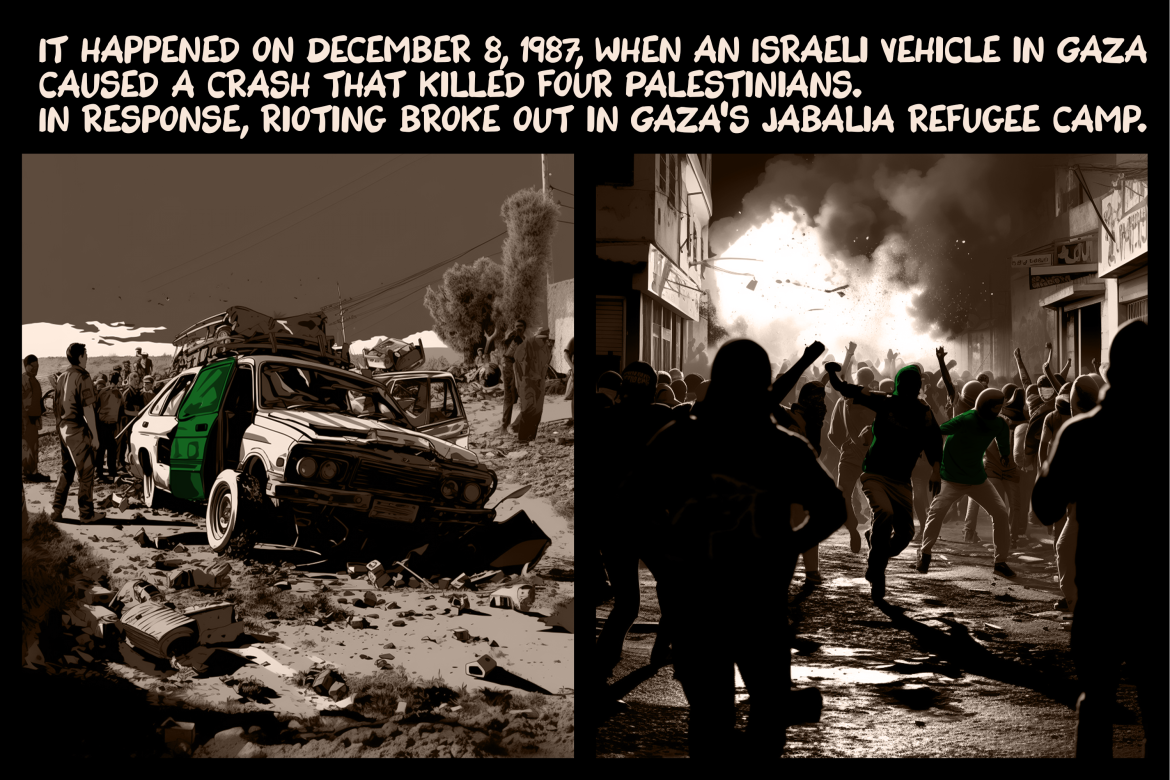
This was one of many messages of revolutionary hope shared that weekend. Speakers Lara Sheehi and Lina Assi spoke of ‘Cultivating and Sustaining Revolutionary Optimism’, defining it as a conscious political commitment and duty within the context of struggles for liberation, particularly Palestinian liberation. They emphasized the importance of maintaining hope and resilience in the face of ongoing oppression and genocide.
The weekend concluded with a decisive call to action, unveiling a new transnational campaign titled 'Mask Off Maersk' during the 'Arms Embargo Now!' panel. This campaign targets Maersk, one of the world’s largest shipping companies, responsible for transporting 68% of ‘Israel’s’ weapons from the U.S. The Palestinian Youth Movement plans to engage multiple sectors of society within this campaign, including labor, media, and college campuses, to pressure Maersk to sever its ties with ‘Israel’.


